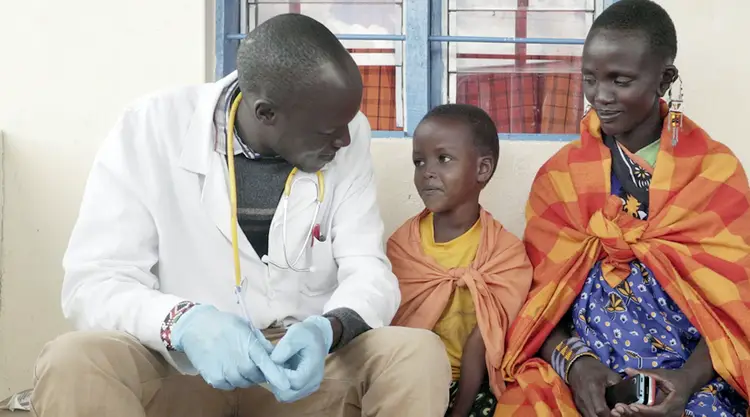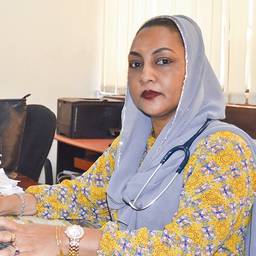Half the world lacks access to essential health services. Vulnerable populations in low- and middle-income countries (LMICs) face rising rates of infectious and non-communicable diseases and increasing healthcare costs. 1
We’re working to accelerate universal health coverage to improve healthcare delivery for those who need it most.
We partner with NGOs, governments, global health organizations, and other businesses to enhance medical quality, increase healthcare access, and improve service efficiency for the world’s most underserved and vulnerable populations.

The SAFEMOM study of ~1,000 moms looked at Ada's impact on healthcare access, safe decisions and improving outcomes for them and their babies.

Ada launched the first AI-based symptom-assessment in Swahili, unlocking access to health information and advice for more than 100 million people seeking healthcare in East Africa.

Statistics are powerful, but such staggering numbers can make it easy to forget they represent individual lives. Read why Ada's AI can help improve global health.

We’re working with Fondation Botnar to localize Ada for Tanzania and Romania. By making Ada available in Swahili and Romanian, we’re giving 119 million people access to trustworthy personal medical guidance to manage their health. Press release.

We worked with the Bill & Melinda Gates Foundation to investigate how we can pair point-of-care diagnostic tests with our clinically driven AI to support health workers in LMICs.

Dr. Stefan Germann
CEO Fondation Botnar

Dr. Nahya Salim
Head of Pediatrics, Muhimbili University

Dr. Davis Musinguzi
Managing Director, The Medical Concierge Group
“We invest in AI as a scalable solution to the global shortage of health workers and the urgent need for improved child and adolescent health. Our partnership responds to this need in East Africa and Romania, creating impact for adolescents and insights for Fondation Botnar and Ada to expand this innovative approach to other low- and middle-income countries.”
“Ada can help identify health conditions, provide information about appropriate health decisions, and support proactive health habits. In Tanzania, Ada can contribute to early identification of cases, build awareness about specific health conditions, and indirectly reduce severe morbidity and mortality.”
“Africa has 10% of the world’s population, 25% of the world’s disease burden, but only 3% of the world’s doctors. Ada is the most intuitively intelligent health assistant that can leapfrog this grand challenge and transform healthcare in Africa as we know it.”
Remais, J., et al. “Convergence of non-communicable and infectious diseases in low- and middle-income countries.” 13 October 2012. Accessed 13 September 2020.
WHO. “Public Spending on Health: A Closer Look at Global Trends.” 2018. Accessed 13 September 2020.